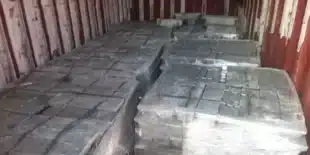Elias Bou Saab, the Deputy Speaker of the Lebanese Parliament, has accused Israel of intensifying its bombardment of Lebanon to pressure the Lebanese government into making concessions during indirect ceasefire talks with Hezbollah. Bou Saab remarked that the pressure had increased as the situation neared a crucial turning point in the negotiations for a ceasefire.
Despite the pressure, Bou Saab expressed cautious optimism, noting that there was hope for a resolution, though nothing could be certain given the unpredictability of Israeli Prime Minister Benjamin Netanyahu’s approach.
In recent days, Israel has carried out heavy airstrikes in central Beirut, while Hezbollah has responded by escalating rocket attacks on Israel. The United States is facilitating negotiations to secure an agreement that would see Hezbollah and Israeli forces withdraw from southern Lebanon, allowing Lebanese troops and a U.N. peacekeeping force to take control of the area.
One key point of contention has been Israel’s demand for the ability to act freely against Hezbollah if the ceasefire is violated. Bou Saab stated that this demand was not part of the developing agreement. Additionally, Israel has agreed to allow France to be part of the committee overseeing the ceasefire, following pressure from Lebanese officials. However, there was no immediate confirmation from the Israeli side.
An anonymous source familiar with the discussions indicated that France would indeed join the monitoring committee. This follows Israel’s objections to France’s involvement, especially after the International Criminal Court issued arrest warrants for Netanyahu, his former defense minister, and a Hamas military commander. France, which supports the court’s decision, has said that while it is a “complex legal issue,” it would need to determine whether to arrest Netanyahu should he visit France.


